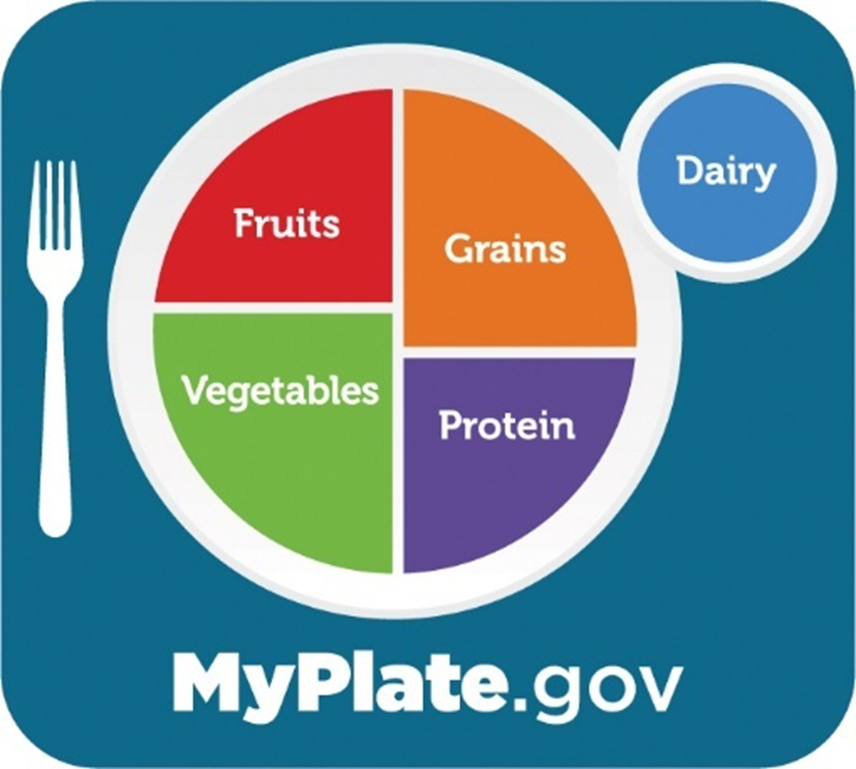7.1 Taking Care of Your Physical Health
Questions to consider:
- What is healthy eating?
- Why is it important to stay hydrated?
- How important is exercise to a healthy body?
- Are you getting enough sleep to be healthy?
- What are toxins, and how can they affect your health?
You have one body. Treat it well to maximize its ability to serve you throughout your life. Often, physical health gets moved to the bottom of the priority list when we are busy. Taking care of your physical health doesn’t mean six-pack abs or training for a marathon. It means honoring your physical needs so your body can function properly, feeding your cells the nutrients that will keep your body working well your entire life, and minimizing exposure to toxins to reduce your risk of disease.
Healthy Eating
While it’s not the only thing that contributes to great health, what you eat makes a huge difference. We have 37 trillion cells in our body. The only way they function optimally is with good nutrition. As a college student, you will be surrounded by temptations to eat poorly or even to overeat. It’s now up to you to make wise choices in the face of these temptations. Your kitchen is likely full of many healthy foods and just as many unhealthy foods. You may grab food on the run while racing to class or order a pizza at midnight while studying for a test. Lobby vending machines or a stash of snacks in your room should not turn into a substitute for real meals. The downside of fast food and easy-access treats is that many are loaded with sugar, salt, or both.
There are five different food groups considered the building blocks for a healthy diet—vegetables, fruits, proteins, grains, and dairy. A healthy plate is low in refined carbohydrates (donuts, pastries, pasta, cookies), low in sugar, and low in saturated fat (although we need healthy fats like avocado and nuts).
Nutritionists at Harvard created The Healthy Eating Plate, which is based on what they consider to be the best available science. Half the plate is vegetables and fruit. Aim for eight servings of veggies or fruits a day, with more veggies than fruits.

What You Drink
What is your go-to drink when you are thirsty? Soda? Juice? Coffee? How about water? Most of your blood and every cell in your body are composed of water. In fact, water makes up 60 to 80 percent of our entire body mass, so when we don’t consume enough water, all kinds of complications can occur. To function properly, all the cells and organs in our body need water. Just like plants need food and water to thrive, we need to be well-hydrated and nourished to feel our best. By the time you feel thirsty, you are already dehydrated. Dehydration is when your body does not have as much water and fluids as it needs. Researchers at Virginia Polytechnic discovered that mild dehydration (as little as losing 1 to 2 percent of body water) can impair cognitive performance. Water increases energy and relieves fatigue, promotes weight loss, flushes toxins, improves skin complexion, improves digestion, and is a natural headache remedy (your brain is 76 percent water). Headaches, migraines, and back pain are commonly caused by dehydration. Your body will also let you know it needs water by messaging through muscle cramps, achy joints, constipation, dry skin, and, of course, a dry mouth.
Staying hydrated is important to keep your body healthy, energized, and running properly. As a general guideline, aim to drink eight glasses of water a day, although a more helpful guide is to drink half your body weight in ounces (for example, if you weigh 150 lb, try to drink 75 oz of water a day). One of the best ways to remind yourself to drink throughout the day is to buy a reusable bottle and bring it everywhere you go.
Exercise
Many people exercise to maintain or lose weight, but weight loss is only one potential benefit of exercise. Regular exercise can improve the quality of your sleep, strengthen your bones, increase your energy levels, and reduce your risk of high blood pressure, diabetes, and even some forms of cancer. Regular exercise is key to living a long, healthy life.
Generally, aim to do:
- 30 minutes of moderate-intensity cardio activity at least five days per week (150 minutes per week)
- At least 25 minutes of vigorous aerobic activity three days per week (75 minutes per week)
Exercise also has many positive benefits for your mental health. It reduces your stress level and helps manage anxiety. Students at San Antonio College have access to the Candler Physical Education Building, which has open gym hours. Students can stay active by joining intramural sports or enrolling in kinesiology classes.
Licenses and Attribution
CC Licensed Content
- College Success by Amy Baldwin is licensed CC BY. Access for free.
Reference
- U.S. Department of Agriculture. (n.d.). MyPlate dietary guidelines graphic [Illustration]. https://www.myplate.gov/

